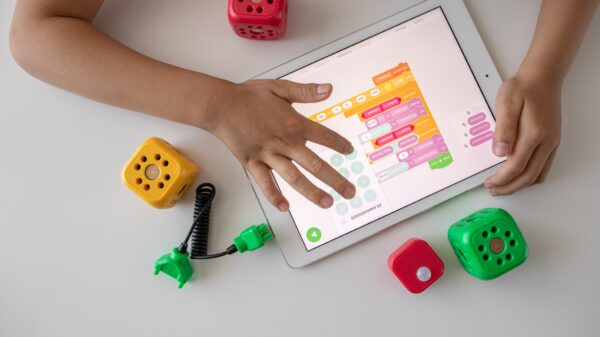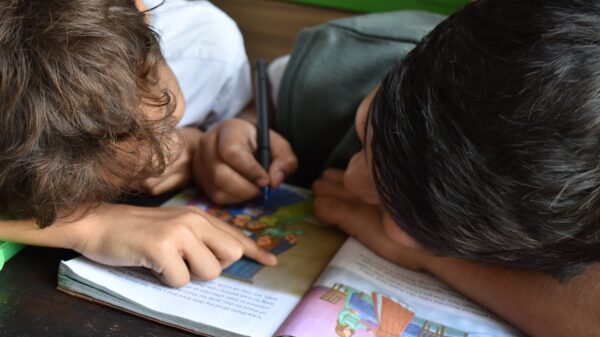
As the school year comes to a close, it’s only natural to reflect on your teaching performance. Did you meet your goals? Did you make a difference in your students’ lives? Evaluating your effectiveness as an educator is crucial for growth and improvement. Join us as we take a look back at this past school year and explore ways to effectively evaluate our teaching effectiveness!
Introduction to Teaching Effectiveness
It’s that time of year again! The school year is coming to a close, and it’s time to start thinking about next year. But before you do that, it’s important to take a step back and evaluate your teaching effectiveness. This will help you identify areas of improvement and make necessary changes for next year.
There are a few key things you should keep in mind when evaluating your effectiveness as a teacher. First, consider the learning goals you set for your students at the beginning of the year. Did you achieve these goals? If not, why not? Secondly, take a look at the feedback you’ve received from students, parents, and colleagues throughout the year. What positive feedback have you received? What constructive criticism have you been given? Use this feedback to help you identify areas of strength and weakness.
Think about your own satisfaction with your teaching this year. Were there any lessons or units that you particularly enjoyed teaching? Are there any areas that you feel need improvement? Be honest with yourself in order to make the necessary changes for next year.
By taking the time to evaluate your teaching effectiveness at the end of the school year, you can ensure that you’re always improving as an educator and providing your students with the best education possible.
Reflecting on the School Year and Teaching Effectiveness
It’s been a long year, and you’re probably ready for a break. But before you pack up your classroom and head out for the summer, take some time to reflect on your teaching effectiveness. Doing a self-evaluation at the end of the school year can help you identify areas of improvement and set goals for the next year.
Here are some questions to ask yourself as you reflect on your teaching:
What went well this year? What were some of your successes?
What didn’t go well this year? What are some areas you need to work on?
What could you have done differently? Are there any decisions you regret?
What did your students learn this year? How do you know they learned it?

What could you have done to help your students learn more? Are there any content areas you feel like you didn’t cover adequately?
How did you manage your classroom this year? Was there anything you struggled with, like behavior issues or managing too many assignments?
Did you develop strong relationships with your students this year? How did those relationships impact their learning?
Looking back on the past year, what are things you want to keep doing next year? And what are things you want to change or do differently next year?
Analyzing Your Teaching Effectiveness
When it comes time to reflect on your teaching at the end of the school year, it is important to be both honest and objective with yourself. Take some time to analyze your strengths and weaknesses as a teacher, and identify areas in which you would like to improve.
One way to do this is to ask your students for feedback. This can be done informally, through a conversation or two, or more formally, through a survey or questionnaire. Be sure to explain that you are seeking honest feedback in order to improve as a teacher.
Another way to evaluate your effectiveness is to review your students’ grades and test scores. This will give you an idea of how well they have learned the material you have taught them. If you notice any areas of concern, such as a drop in grades or test scores, be sure to investigate further so that you can determine what might be causing the problem.
Take some time to reflect on your own teaching practices. What worked well this year? What didn’t work so well? What would you like to change next year? By taking an honest look at your teaching, you can make necessary changes and improvements that will benefit both you and your students.
– Student Engagement
As the school year comes to an end, it’s important to take some time to reflect on your teaching effectiveness. This can help you identify areas where you excelled and areas where you need to improve. Here are some questions to ask yourself:
– How engaged were my students in class? Did they participate in discussions and activities?
– How much progress did my students make over the course of the year? Did they meet or exceed expectations?
– How well did my students interact with each other? Were they respectful and cooperative?
– How did my students respond to my teaching style? Did they seem engaged and interested, ordid they seem bored or disengaged?
– What feedback did I receive from colleagues, administrators, or parents/guardians? Was it positive or negative?
– What feedback did I receive from students themselves? Was it positive or negative?
Taking the time to reflect on your teaching effectiveness can help you identify areas of improvement for next year. By asking yourself these questions, you can get a better sense of what worked well and what didn’t work so well this year. With that knowledge, you can make changes accordingly and be even more effective next year!
– Classroom Management
As the end of the school year approaches, it’s important to take some time to reflect on your teaching effectiveness. This reflection can be helpful in setting goals for the next school year. To help you evaluate your teaching, consider the following questions:
– What worked well in my classroom this year?
– What didn’t work well in my classroom this year?
– What could I have done differently to improve student learning and engagement?
– What were some challenges I faced this year, and how did I overcome them?
– What did my students seem to enjoy or find most challenging about my class?
– What areas do I need to work on as a teacher?
Taking the time to reflect on your teaching practice at the end of the school year can help you become a more effective educator. By considering what worked well and what didn’t work well, you can make changes in your teaching that will benefit your students.
– Curriculum Planning and Implementation
As the end of the school year approaches, it’s important to take some time to reflect on your teaching effectiveness and how you can improve moving forward. Here are some questions to ask yourself:
-What goals did you set for yourself at the beginning of the year? Did you achieve them?
-How well did you plan and implement your curriculum? Was there anything you would change?
-Did you use a variety of instructional strategies and materials, or did you stick to what you’re comfortable with?
-Did your students seem engaged in learning? What could you do to increase engagement next year?
-What type of feedback did you receive from colleagues, administrators, and/or parents? Was it positive or constructive?
-What challenges did you face during the year, and how did you overcome them?
-What do you think went well this year? What would you like to improve upon next year?
– Assessment Strategies
When it comes to assessing your teaching effectiveness, there are a few key strategies you can use to reflect on your performance over the course of the year. Here are a few assessment strategies to consider:
1. Review student feedback: One of the best ways to assess your teaching effectiveness is to review feedback from your students. This can be done through formal evaluations or simply by asking for student feedback at the end of each class. Be sure to take this feedback into account when planning future lessons and units.
2. Observe yourself in action: Another helpful way to assess your teaching is to observe yourself in action. This can be done by videotaping yourself teaching a lesson or by having a colleague observe you in the classroom. This will give you an opportunity to see what works well and what areas need improvement.
3. Reflect on your goals: At the beginning of the year, you likely set some goals for yourself as a teacher. Take some time at the end of the year to reflect on whether or not you were able to meet these goals. This will help you identify areas of strength and areas that need more attention in the future.
4. Talk to your colleagues: Ask your colleagues for their honest feedback about your teaching this year. They may have some helpful insights that you weren’t aware of. Be open to hearing both positive and negative feedback so that you can learn from it and continue to improve as a teacher.
5. Review student
– Professional Development and Growth
When it comes to professional development and growth, looking back at your teaching effectiveness can be a helpful way to set goals for the future. Here are some things to consider when evaluating your teaching:
-Did you try new instructional strategies this year? If so, what was the impact on student learning?
-What went well in your classroom this year? What could have been improved?
-What did you learn this year? How did you grow as a teacher?
-What challenges did you face this year, and how did you overcome them?
-What positive relationships did you build with students, colleagues, and parents/guardians?
By taking the time to reflect on your teaching effectiveness, you can identify areas of strength and areas for improvement. This will help you set goals for the next school year and continue to grow as a teacher.
Looking to the Future: How to Improve Your Teaching Effectiveness for Next Year
As the school year comes to a close, it’s important to take some time to reflect on your teaching practices and methods. This will help you determine what has been effective and what can be improved upon for next year. Here are some tips on how to evaluate your teaching effectiveness:
1. Talk to your students. Ask them what they thought of the class, what they enjoyed, and what they didn’t like. This feedback can be extremely helpful in identifying areas that need improvement.
2. Analyze your student data. Take a look at grades, test scores, and other measures of student success. This will help you identify any areas where students struggled and may need more support next year.
3. Reflect on your own teaching practices. Think about what went well and what you could have done better. Identify any areas where you need more professional development or assistance.
By taking the time to reflect on the past year and identify areas for improvement, you can ensure that next year is even more successful!
Conclusion
Evaluating your teaching effectiveness at the end of the school year is an important practice for teachers. By looking back on what worked and what didn’t work, you can gain valuable insights into how to be a more effective educator in the future. Taking some time to reflect on how your students have grown over the school year will not only help you gauge your own progress but it can also give you renewed motivation to continue striving towards excellence in the classroom.







